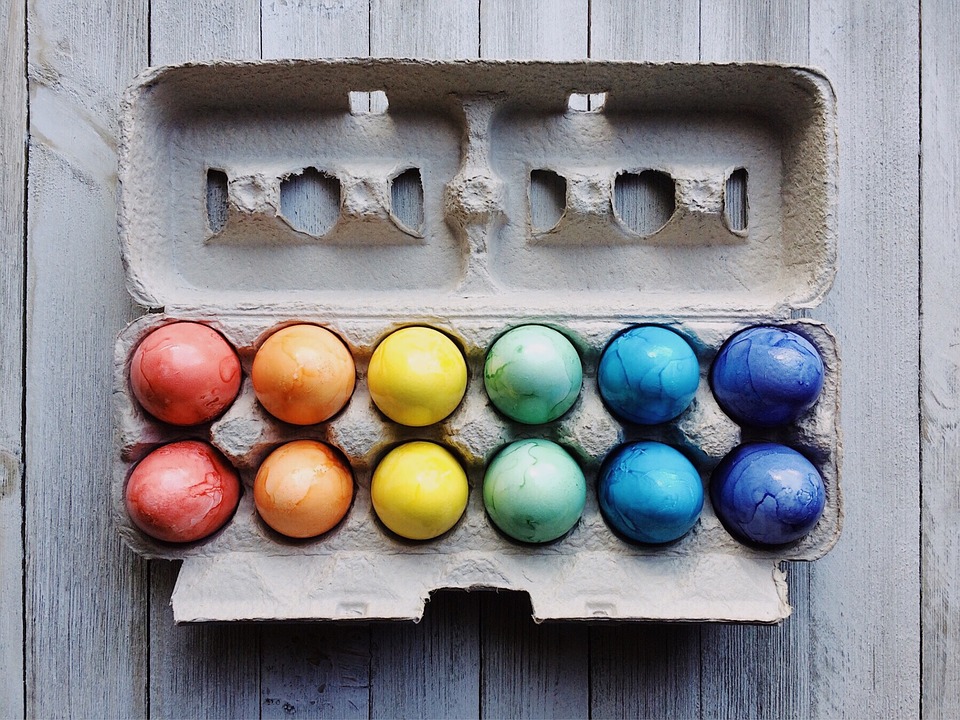By Jeff Sheppard 11 Apr 2020 no comment 1033 Views
The egg has long been a symbol of Easter and springtime because of its associations with new life. As new shoots begin to grow, leaves unfurl on the trees and baby animals are born—or hatch—we celebrate with colourful eggs.
We need to enjoy Easter chocolate in moderation, but fortunately, eggs are an excellent part of a balanced diet.
A large egg has only about 80 calories, but it is packed with nutrients and protein.
Can you eat Easter eggs? Yes, you can!
Hardboiled eggs last up to a week in the fridge. There is no need to worry about dyes if you colour your Easter eggs naturally.
The internet is full of recipes for natural Easter egg dyes. Mix common foods with vinegar and water for colourful Easter eggs. For example, chopped purple cabbage makes blue on white eggs, green on brown eggs. Tumeric make eggs yellow or golden. Shredded beets make white eggs pink and brown eggs maroon. Berries like blueberries or raspberries are other good choices.
Hardboiled eggs are an excellent quick meal
You can make them on the weekend and have them on hand for meals and snacks. When you’re rushed for breakfast for yourself or your kids, all you have to do is crack and peel.
Other egg dishes are equally convenient. Prepare egg dishes in advance and warm them up up for breakfast or lunch. Scrambles, egg muffins, omelettes, and quiche are nutritious and tasty. Add different vegetables for variety and even more nutrition.
If you’re cooking vegetarian and hoping to boost your protein intake, try adding an egg or two to a stir-fry or soup. For a satisfying salad, slice cold hardboiled eggs over lettuce and vegetables. Protein will help you feel fuller longer and give you energy for your day.

